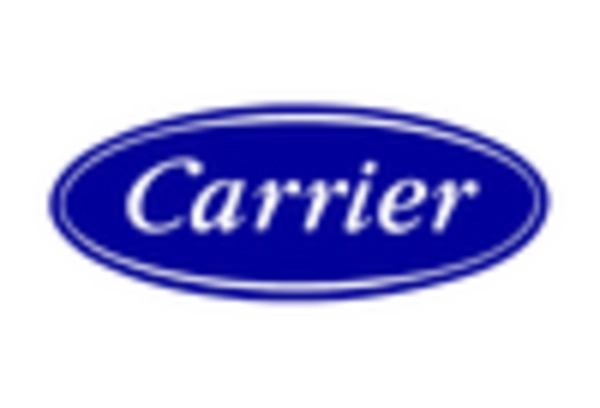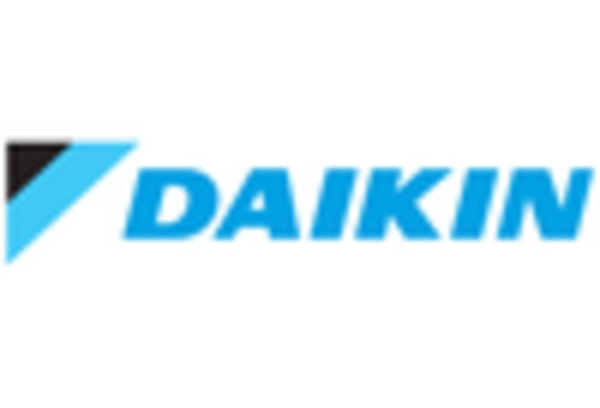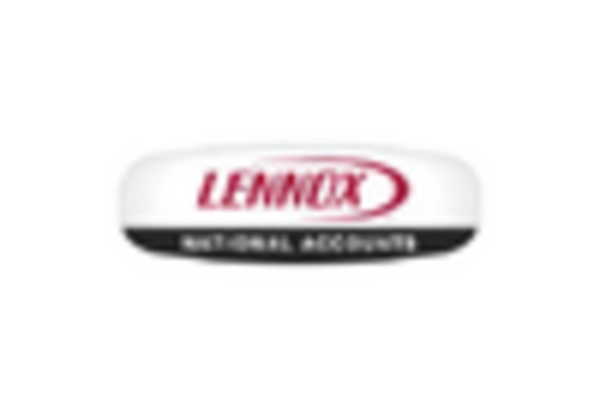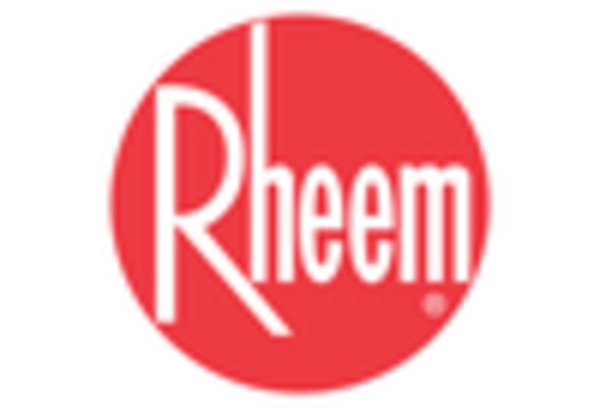Increased Adoption of IoT Devices
The integration of Internet of Things (IoT) devices within HVAC systems is significantly influencing the hvac software market in Canada. IoT technology allows for real-time monitoring and control of HVAC systems, enhancing operational efficiency and user convenience. As of 2025, it is estimated that over 50% of new HVAC installations in Canada will incorporate IoT capabilities. This trend suggests a growing need for sophisticated software that can manage and analyze data from these devices. Consequently, software developers are likely to focus on creating platforms that facilitate seamless communication between IoT devices and HVAC systems, thereby improving overall system performance and user satisfaction.
Rising Energy Efficiency Standards
The HVAC software market in Canada is experiencing a notable shift due to the implementation of stringent energy efficiency standards. Regulatory bodies are increasingly mandating higher efficiency ratings for HVAC systems, which necessitates advanced software solutions for compliance. This trend is likely to drive demand for software that can optimize system performance and monitor energy consumption. As of 2025, the Canadian government aims to reduce greenhouse gas emissions by 30% from 2005 levels by 2030, which could further propel the hvac software market. Companies that invest in innovative software solutions to meet these standards may gain a competitive edge, as they can offer more efficient and environmentally friendly HVAC systems.
Emphasis on Enhanced Data Analytics
The HVAC software market in Canada is increasingly focusing on enhanced data analytics capabilities. As HVAC systems generate vast amounts of data, the ability to analyze this information effectively is becoming crucial for optimizing performance and energy usage. Companies are seeking software solutions that can provide actionable insights from data, enabling better decision-making and operational efficiency. By 2025, it is expected that the demand for data-driven HVAC solutions will grow by approximately 40%. This emphasis on analytics suggests that software developers will prioritize features that allow for comprehensive data analysis, thereby positioning themselves favorably in the competitive landscape.
Expansion of Smart Building Initiatives
The rise of smart building initiatives in Canada is significantly impacting the hvac software market. As urban areas continue to grow, there is an increasing emphasis on creating energy-efficient and technologically advanced buildings. Smart buildings utilize integrated systems that optimize HVAC performance, lighting, and security, often requiring sophisticated software solutions for management. By 2025, it is anticipated that smart buildings will account for over 30% of new construction projects in Canada. This trend indicates a robust market opportunity for hvac software that can seamlessly integrate with other building management systems, thereby enhancing operational efficiency and occupant comfort.
Growing Demand for Predictive Maintenance Solutions
The HVAC software market in Canada is witnessing a surge in demand for predictive maintenance solutions. Businesses are increasingly recognizing the value of proactive maintenance strategies to minimize downtime and reduce operational costs. By leveraging advanced analytics and machine learning algorithms, hvac software can predict potential system failures before they occur. This trend is particularly relevant in commercial settings, where HVAC systems operate continuously. As of 2025, it is projected that predictive maintenance could reduce maintenance costs by up to 25% and extend equipment lifespan. This potential for cost savings is likely to drive investments in hvac software that offers predictive capabilities, thereby enhancing market growth.
















